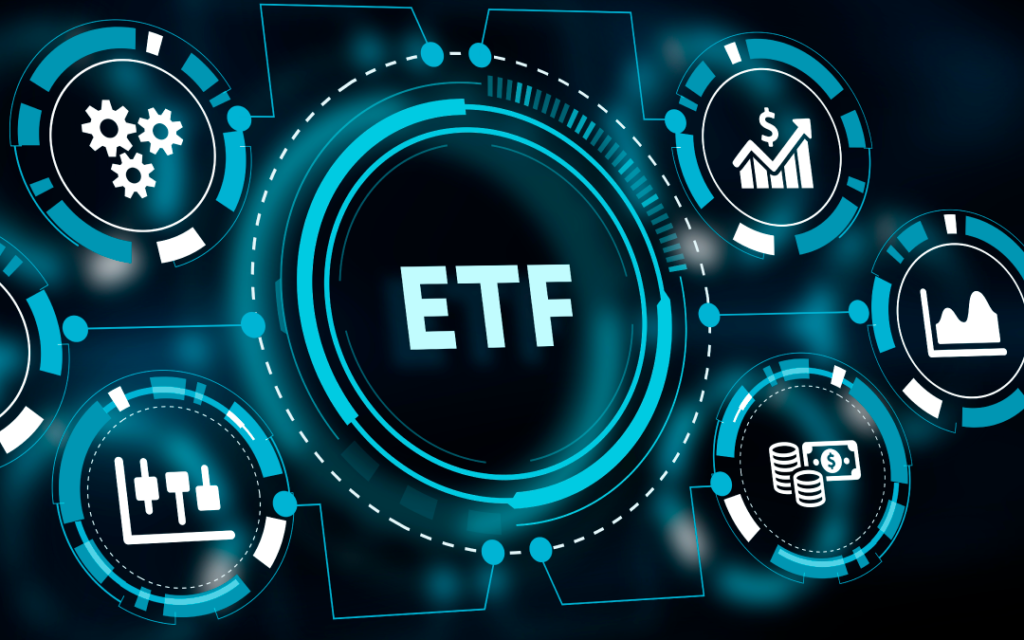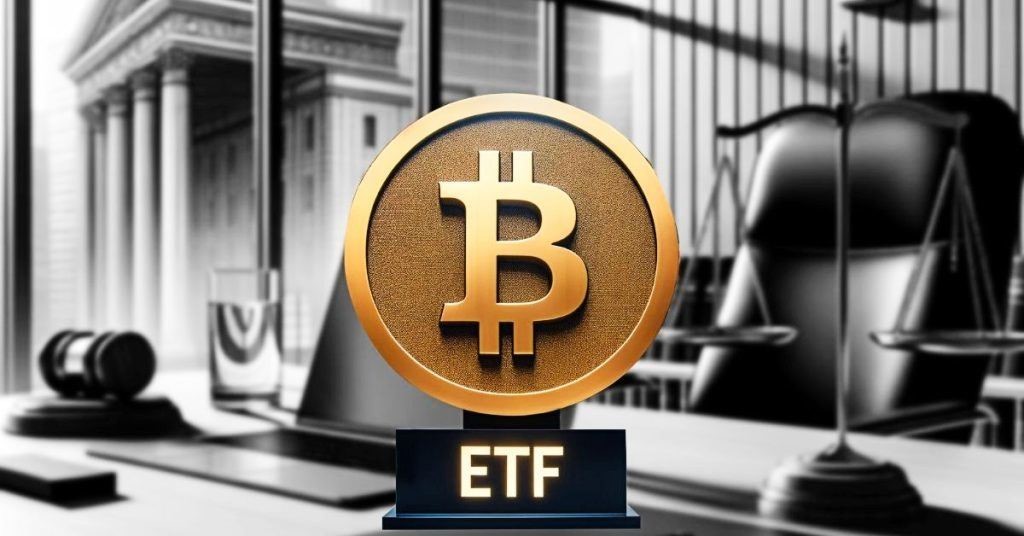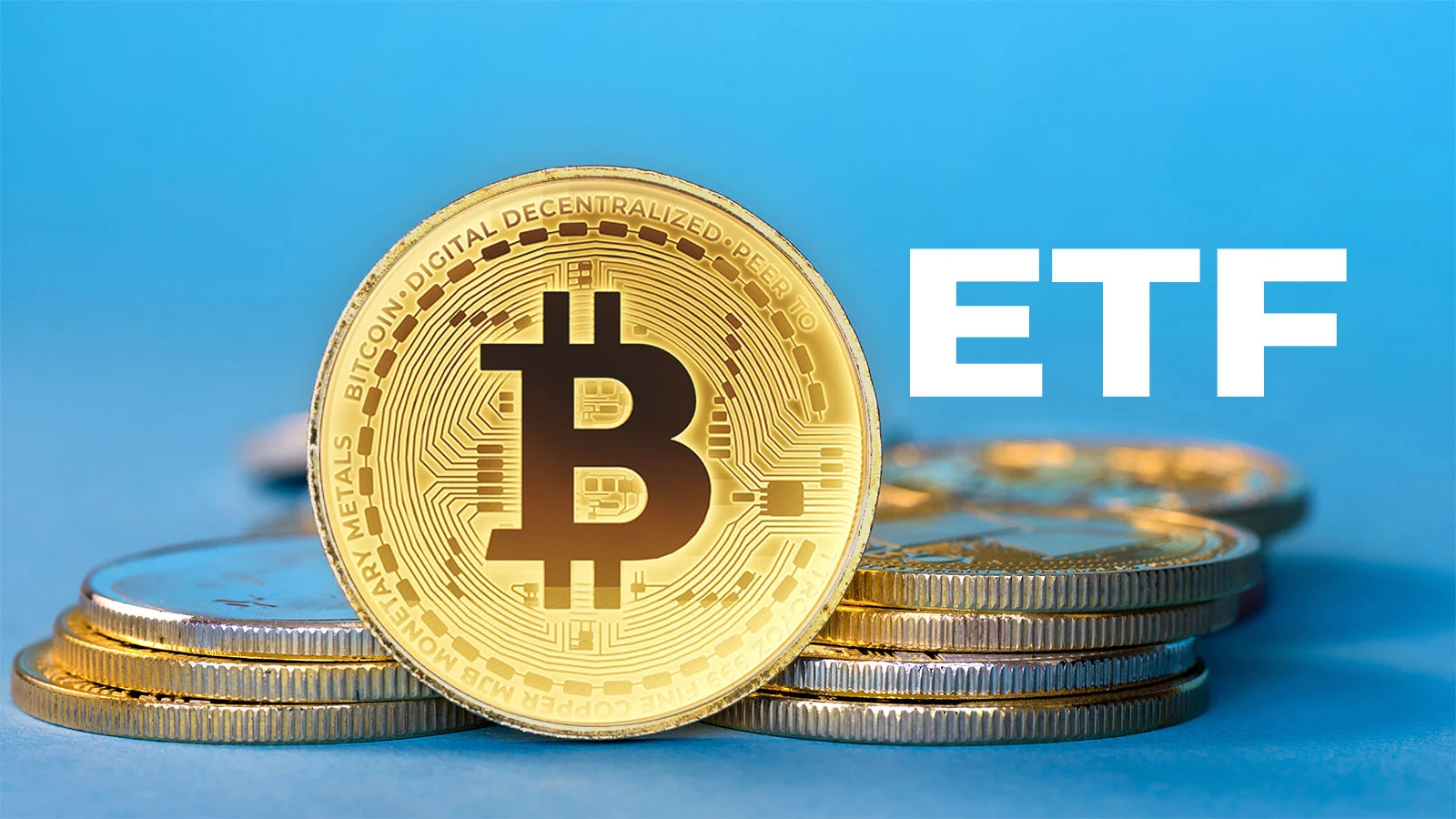
What Is an Exchange-Traded Fund (ETF)?
What is Bitcoin ETF , or Exchange-Traded Fund, is a type of investment fund and exchange-traded product, with shares that are tradeable on a stock exchange. It combines features of both mutual funds and stocks. ETFs typically track the performance of a specific index, commodity, bonds, or a basket of assets, providing investors with exposure to a diversified portfolio. The goal is to replicate the performance of the underlying asset or index.
An Exchange-Traded Fund (ETF) is an investment fund and traded product on stock exchanges. It amalgamates characteristics of mutual funds and stocks. These funds usually mirror the performance of a designated index, commodity, bonds, or a collection of assets, granting investors access to a diversified portfolio. The primary objective is to emulate the performance of the underlying asset or index.
- An Exchange-Traded Fund (ETF) is a fund that encompasses multiple underlying assets, differentiating it from individual stocks which typically represent a single asset. The appeal of ETFs often lies in their capacity for diversification due to the inclusion of various assets, such as stocks, commodities, bonds, or a blend of investment types.
- ETFs can comprise a broad spectrum of investments, ranging from hundreds to thousands of stocks spanning diverse industries. Alternatively, an ETF might concentrate on a specific industry or sector, whether within the U.S. or on a global scale. For instance, an ETF focused on the banking sector would encompass stocks from various banks.
- Notably, ETFs are marketable securities, featuring a share price that facilitates easy buying and selling on exchanges throughout the day, including the ability to be sold short. In the United States, the majority of ETFs are structured as open-ended funds, adhering to the regulations outlined in the Investment Company Act of 1940, unless specific rules have subsequently altered their regulatory requirements.
What is Bitcoin ETF?
A Bitcoin ETF, specifically, is an ETF that tracks the price of Bitcoin, the popular cryptocurrency. Instead of investors directly holding Bitcoin, they can buy shares of the Bitcoin ETF, which holds Bitcoin on behalf of the investors. This allows investors to gain exposure to the price movement of Bitcoin without having to buy and store the cryptocurrency themselves.

Bitcoin ETFs offer several potential advantages for investors
- Accessibility
Investors can buy and sell shares of a Bitcoin ETF on traditional stock exchanges, making it more accessible compared to directly buying and storing Bitcoin.
- Regulation
ETFs are regulated investment products, providing a level of oversight and investor protection that may be lacking in some cryptocurrency markets.
- Diversification
Bitcoin ETFs often hold a basket of Bitcoin, spreading the risk across multiple assets.
- Convenience
Investors can trade Bitcoin ETF shares during regular market hours, unlike the 24/7 trading of the cryptocurrency markets.
An exchange-traded fund (ETF) is an investment vehicle designed to mirror the performance of an underlying asset or index. Currently, ETFs cater to a diverse range of assets and industries, spanning commodities to currencies.
The concept of a Bitcoin ETF operates on a similar principle. In this scenario, the value of one share of the exchange-traded fund correlates with the price movements of Bitcoin. If the value of Bitcoin rises, the ETF’s value also increases, and conversely, if Bitcoin’s value falls, the ETF follows suit. Notably, unlike the direct trading of Bitcoin on a cryptocurrency exchange, the Bitcoin ETF would be traded on a conventional market exchange such as the NYSE or TSX.
Conclusion
Bitcoin ETFs have been a topic of significant interest and discussion in the financial world. As of my last knowledge update in January 2022, several proposals for a Bitcoin ETF had been submitted to regulatory authorities, but approval had not been granted in the United States. It’s essential to check the latest developments and regulatory status, as the situation may have changed since then.
